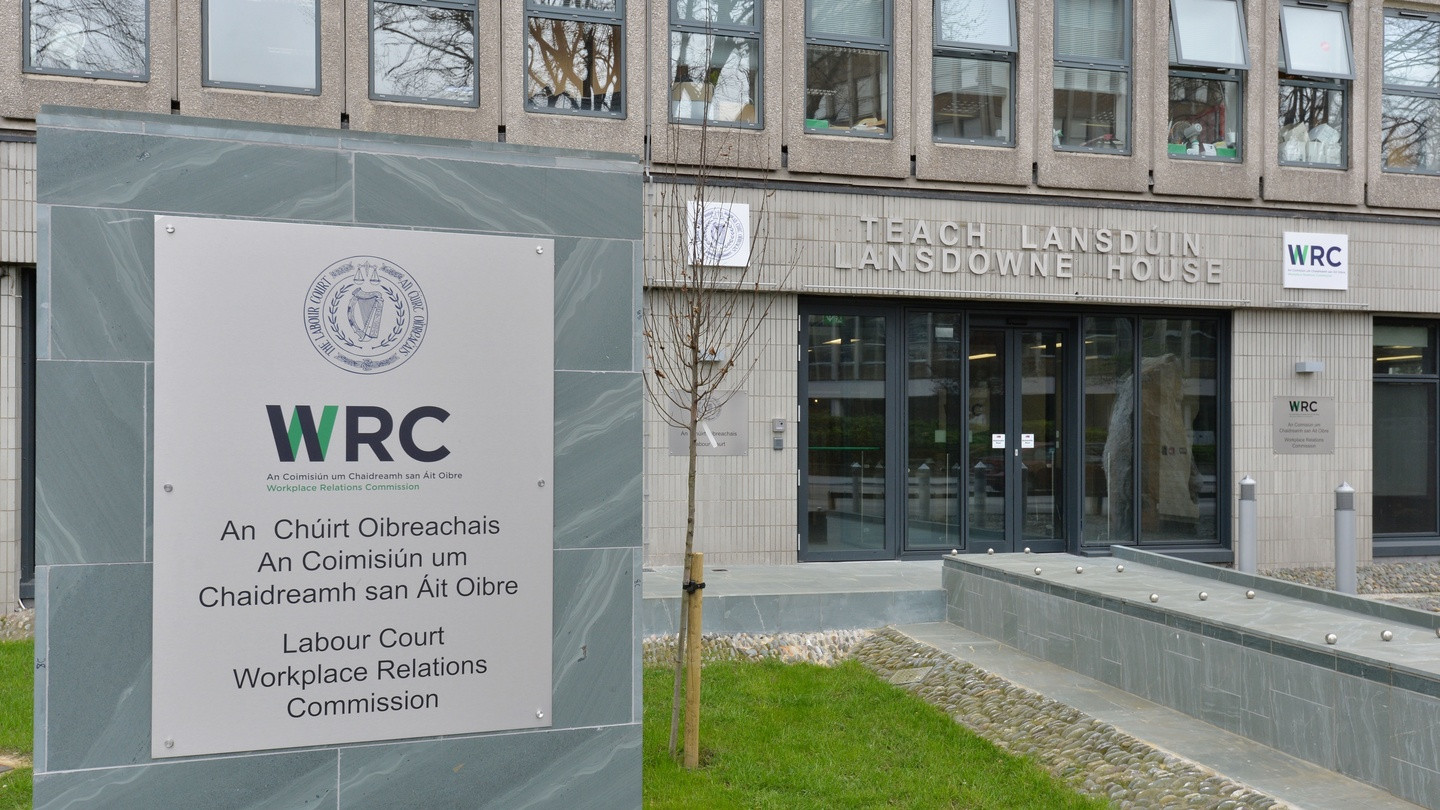Two Government departments have been criticised by the Labour Court for their failure to engage with the State’s own industrial relations mechanisms in relation to a pay claim by adjudicating officers (AOs) at the Workplace Relations Commission. The Department of Enterprise and Employment, which has responsibility for both the WRC and Labour Court, failed to attend a Labour Court hearing called to consider the dispute, apparently on foot of instructions received from the Department of Public Expenditure and Reform. The AOs, who hear cases concerning pay and other issues at the WRC, have themselves been embroiled in a long-running dispute with the department over the €525 per day pay they receive when involved in cases and on other issues, including the number of days they are paid to write up decisions. They say their pay has not been increased in six years and their workload has increased significantly because more of the WRC’s business is now conducted in public. Some AOs are permanent public servants but the dispute involves a group of 31 external officers who are employed under contract on a part-time basis. A portion are barristers while others hold different types of employment. In its recommendation on the dispute, issued to the parties on Thursday, the Labour Court cited correspondence from the Department of Employment suggesting it had made a business case for a number of measures intended to address the claim but this had been rejected by the Department of Public Expenditure. Employment subsequently wrote to the Labour Court to say “it does not appear to us that external adjudicators are workers within the meaning of the Industrial Relations Act, 1969″. It claimed it was not the correct respondent in the case and also forwarded correspondence it had received from the Department of Public Expenditure stating that the invitation to attend the Labour Court “should not be accepted”. The letter to the court from the Department of Employment went on to state that “if the court were to make a recommendation in favour of the 31 individuals, the department would not have authority to comply”. The court, comprising chair Kevin Foley, Paul O’Brien from the employers’ panel and Paul Bell from the employee one, disagreed regarding the status of the 31, finding they were workers under the terms of the Act and were validly involved in a dispute. It said the basis for the department’s claim not to be the correct respondent was “unclear” and raised the question of what other body might be the correct respondent. It described the department’s decision not to attend the hearing as as a matter of “concern and regret”. It acknowledged, however, the rejection of the Department of Employment business case by the Department of Public Expenditure made an immediate solution to the dispute impossible. It was critical of the Department of Public Expenditure’s position with regard to the hearing, however. “Successive governments and ministers since 1946 have… publicly endorsed the proposition that disputing parties should engage with the institutions of the State to assist in the resolution of trade disputes,” it said in its recommendation. “Against that background, it is a matter of grave concern that the DPENDR [Department of Public Expenditure] should instruct/advise a Government department to decline an invitation from the court to attend the hearing of the court in this matter.” Ultimately, the court recommended the two sides engage again to explore the claim and how it might be reasonably resolved. “Provided such an analysis is fair, reasonable and comprehensive to the degree that it takes account of all relevant factors impinging on the matters in dispute, it should be possible for both parties, exercising realism, pragmatism and common sense, to arrive at an outcome within the alleged trade dispute which can be considered realistic and reasonable by all parties.” The process should be completed within three months with the Department of Employment then to submit a new business case to the Department of Public Expenditure for the measures required to resolve the situation. The Department of Public Expenditure has commented: “This department recognises and values the critical role of the Labour Court in resolving industrial disputes. We note the recommendation of the court and that further work will be undertaken in relation to this matter.” The Department of Employment was also approached for comment. ## Government Snub of Labour Court in WRC Dispute Raises Concerns The Labour Court’s strong criticism of the government's stance in the WRC pay dispute underscores the potential for significant disruption to the country's industrial relations landscape. The court's finding that the two departments involved failed to engage with the State’s own industrial relations mechanisms is a stark reminder of the crucial role played by these institutions in resolving disputes and maintaining stability within the workplace. ### Implications of the Labour Court's Decision The court’s decision to criticize the government’s actions could have far-reaching implications for the future of industrial relations in Ireland. It sends a strong signal that the government’s failure to engage with the Labour Court in a timely and constructive manner will not be tolerated. This case highlights the importance of upholding the principles of fairness, transparency, and accountability in public sector pay negotiations. The government’s actions, particularly the instruction from the Department of Public Expenditure to decline the Labour Court’s invitation, have been viewed as a breach of faith in the established process for resolving such disputes. ## Looking Ahead The Labour Court’s recommendation that the two sides engage again in order to explore a resolution to the dispute represents a positive step towards finding a workable solution. The court’s emphasis on the need for fairness, reasonableness, and pragmatism on both sides suggests a willingness to mediate a mutually acceptable outcome. The success of this process will hinge on the government’s willingness to engage constructively with the Labour Court and the WRC adjudicators. The government’s commitment to upholding the principles of fair play and respect for established institutions will be tested in the coming months. The outcome of this dispute will have a significant impact on the future of industrial relations in Ireland and serve as a benchmark for how future disputes will be handled.
Kwame Osei
Reporter
Dedicated reporter bringing you the latest updates.


















